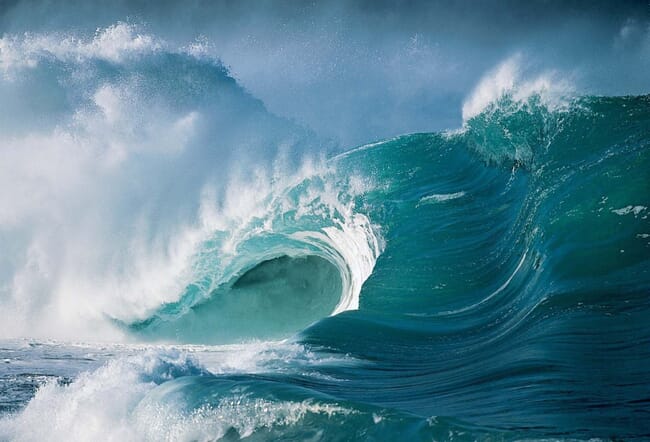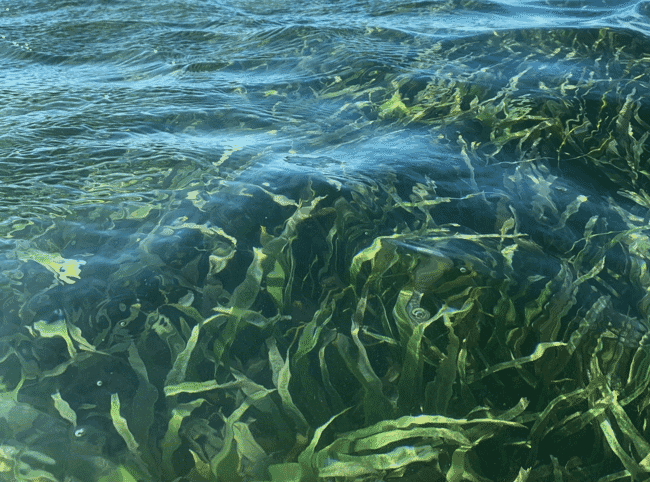
The ocean provides many resources like food, energy and transportation along with recreation and tourism plus ecosystem services like climate and weather regulation © H4XLabs
SBTN Ocean Hub officially launched its first workstream: Seafood Value Chains with help from CI and WWF. The announcement comes as world leaders meet in Lisbon, Portugal, for the United Nations Oceans Conference, focused on “Scaling up ocean action Based on science and innovation for the implementation of Goal 14: stocktaking, partnerships and solutions.”
“Our oceans today may be facing unprecedented challenges, but a nature-positive future is possible. It will take private sector action to halt and reverse the declines in our marine ecosystems. They’re at the table ready to act because they understand that a future where healthy oceans support the planet, local people, and our shared prosperity ultimately helps build a more peaceful world, which benefits us all,” said Johan Bergenas, senior vice president for ocean conservation at WWF.
“A science-based approach is needed to inform targets and incentivise action for companies to reduce pressures from ocean-related activities and create more resilient marine ecosystems. This initiative, through uniting and expanding on various existing tools and efforts, has the potential to bring us to a tipping point for industry action on ocean conservation broadly. For many, clear, consistent, science-based targets are the missing piece,” he said.
SBTN is a unique collaboration of over 50 leading global non-profit and mission-driven organisations that aims to translate the latest interdisciplinary science into science-based targets against which companies and cities can take action to reduce their impacts on nature and contribute to nature-positive outcomes. SBTN complements and builds upon the work of the Science Based Targets initiative (SBTi) which develops science-based targets for climate action.
“As the risks of climate and broader environmental crises come into ever sharper view, business and civil leaders, investors, and consumers are calling for more rigorous and practical ways to enable companies and cities to take ambitious, measurable action towards safeguarding the future. Momentum is building – we already have over 100 companies with a market cap of approximately $4 trillion preparing to set science-based targets for nature. As part of science-based targets for nature, ocean targets focused on the seafood value chain, and their associated guidance, will help companies become better stewards of the global commons by operating within Earth’s limits while also meeting society’s needs,” states Erin Billman, executive director at the SBTN.

Establishing and adhering to science-based targets will help companies become better stewards of the global commons © Ocean Conservancy and the Ocean Foundation
For the SBTN Ocean Hub’s Seafood Value Chain workstream, the aim is to design and test a methodology for setting targets focused on seafood supply chains.
The Seafood Value Chain workstream will include area-expert advisors from organisations such as WWF, UNGC, WRI, and Capitals Coalition. WWF co-leads the Ocean Hub together with Conservation International.
“Our oceans provide food and livelihoods for so many around the world – everything from a single family’s income to an entire region’s food source depends on healthy, resilient marine ecosystems,” said Jack Kittinger, vice president of blue production at Conservation International.
“Climate change and higher temperatures are putting our ocean biodiversity and ultimately ourselves at risk. This collaborative effort will help keep people and nature at the centre of work to ensure sustainable seafood supply chains,” he adds.
Since June 2021, the SBTN has engaged with key stakeholders and ocean experts to set initial focus areas for the Ocean Hub and create an implementation plan. The Ocean Hub will be focusing on the following workstreams: retail and consumer goods value chains; coastal and marine tourism; the coastal nexus and cross-realm pollution.
SBTN has dedicated hubs focusing on developing targets for freshwater, land, biodiversity and the ocean. With the three other hubs already launched, the network is now working with NGOs, businesses, and governments to develop and pilot ocean science-based targets.
Learn more about the work of the Science Based Targets Network here.




